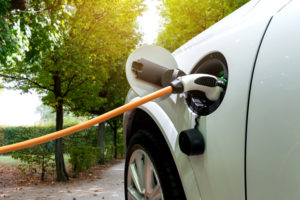Update: See final result
In December 2019, more than 1,000 government representatives from cities and states across the U.S. did something remarkable when they voted to improve the 2021 International Energy Conservation Code (IECC) by 10%. Since buildings account for nearly 40% of U.S. energy consumption and climate emissions, and the IECC serves as the basis for almost every state’s building energy code – this vote could improve nearly all new commercial and residential building construction in the country. However, local government officials who have participated in the 2021 IECC update are now faced with several appeals that put progress in jeopardy. (Learn more about how to share your opinion on the appeals submitted by scrolling to the bottom of this blog.)
After about a decade with few meaningful updates to the IECC, the 2021 improvements are poised to help the code catch-up to modern-day building technology and practices. It could reduce millions of tons of carbon from entering the atmosphere while reducing energy bills for tenants, homeowners, and business owners. The 2021 IECC also includes a first-ever, ready-made optional appendices that can be adopted by state or local jurisdictions that want to achieve zero energy buildings sooner. For cities and states with energy and climate plans, adopting this code is a critical step toward achieving their goals.
The challenges made through the IECC appeals process will be addressed during hearings in the coming months and fall into three categories. The information below builds on a previous blog outlining the challenges and offers more details with “Learn More” links.
Challenge 1: Governmental Member Voting Representatives (GMVR) voting online should not be able to overturn votes cast in person.
Claimed Basis for Appeal: The International Code Council (ICC) should reject thousands of online votes cast for proposals that improve efficiency because these proposed code changes were voted ‘disapproved’ at two development milestone meetings: (1) the Committee Action Hearing (CAH); and (2) the Public Comment Hearing (PCH).
Analysis: This appeal by the National Association of Home Builders (NAHB) attempts to change the rules after the voting has concluded. The appeal states that it “… does not dispute that the letter of CP#28 was followed in the Group B process.” Rather the NAHB’s appeal works to undo the voting outcome because they don’t agree with it. The issue was first lodged as a challenge to the voting results earlier this year. After the Validation Committee Report found that the votes should count, the NAHB submitted the same challenge as an appeal. Still, the voting results were already found not to be a violation of the code development process, the appellants have no basis for the charge.
Learn More
Challenge 2: Electrical energy needs of buildings are not in scope.
Claimed Basis for Appeal: ICC should reject two proposals that are out of scope of the IECC: (1) a requirement to add electrical outlets near gas-fired appliances to allow homeowners flexibility to switch from gas-fired appliances to electric ones; and (2) a requirement that new commercial and residential buildings provide space for electric vehicle charging.
Analysis: The intent of the IECC is as follows: “This code shall regulate the design and construction of buildings for the effective use and conservation of energy over the useful life of each building. This code is intended to provide flexibility to permit the use of innovative approaches and techniques to achieve this objective.” These proposals are clearly within the intent of the IECC and address real market needs. In fact, they are precisely why the code is updated triennially: to keep up with modern technology. These updates future-proof homes and buildings by providing flexibility for innovative approaches to conserving energy in buildings for market-ready technologies people use today.
Learn More
Challenge 3: Hundreds of local government voters should not have been allowed to vote.
Claimed Basis for Appeal: That some voters should not have been allowed to vote as they do not directly enforce codes.
Analysis: The definition of a voter has only minimally changed since 2005. That more people participated this cycle in voting for the energy code should not be surprising. An increasing number of cities and states are setting climate goals, and with building energy use accounting for 39% of total U.S. energy consumption in 2019, building energy codes become a critical part of any climate or sustainability plan. Employees engaged on climate action often include those responsible for: protecting their citizens from the costly and devastating impacts of climate change; the viability of businesses in their local economies; and housing affordability.
Learn More
Next steps in the appeals process
The energy code is unique compared to other health and safety codes because regulating energy use in buildings is a critical tool for achieving state and local climate goals. Codifying these approaches allows for consistency across the country. In fact, the 2021 IECC update is poised to deliver the biggest reductions in climate emissions from buildings and housing seen in the last decade in building codes.
The notice of appeal hearings has been released and is available here. Interested parties will have at least five days to file statements for consideration by the Appeals Board. If you work for a Governmental Member, we encourage you to engage all members from your jurisdiction (building departments, sustainability offices, housing departments, and others) to submit joint letters to the ICC and the Appeals Board, voice support for your original 2021 IECC votes and the successful process of this development cycle.
Address your letters to:
- 2019 Group B Appeals Board, c/o Mike Pfeiffer, Senior Vice President of Technical Services, at [email protected]
- Greg Wheeler, CBO President, International Code Council, at [email protected]
- Dominic Sims, CEO, International Code Council, at [email protected]
For continued updates on the Appeals process, including the coming-soon information about how to log online to view live Appeal Hearings , visit: http://www.iccsafe.org/products-and-services/i-codes/code-development/2019-group-b-appeals/.
Submit letters ASAP, but no later than the deadline of August 17.
by Kim Cheslak, Associate Director of Codes and Policy
Bio
